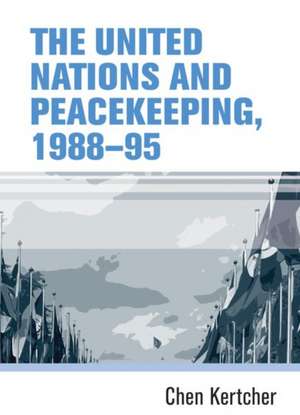United Nations and Peacekeeping, 1988-95
Autor Chen Kertcheren Limba Engleză Paperback – 4 mar 2019
Preț: 390.84 lei
Nou
Puncte Express: 586
Preț estimativ în valută:
74.80€ • 81.22$ • 62.83£
74.80€ • 81.22$ • 62.83£
Carte tipărită la comandă
Livrare economică 22 aprilie-06 mai
Preluare comenzi: 021 569.72.76
Specificații
ISBN-13: 9781526139399
ISBN-10: 1526139391
Pagini: 240
Dimensiuni: 156 x 234 x 13 mm
Greutate: 0.34 kg
Editura: MANCHESTER UNIVERSITY PRESS
ISBN-10: 1526139391
Pagini: 240
Dimensiuni: 156 x 234 x 13 mm
Greutate: 0.34 kg
Editura: MANCHESTER UNIVERSITY PRESS
Descriere
Using more than 600 UN documents that analyse the discussions in the UN Security Council, General Assembly and Secretariat, The United Nations and peacekeeping, 1988-95 presents innovative explanations on how after the Cold War UN peacekeeping operations became the dominant response to conflicts around the globe.
